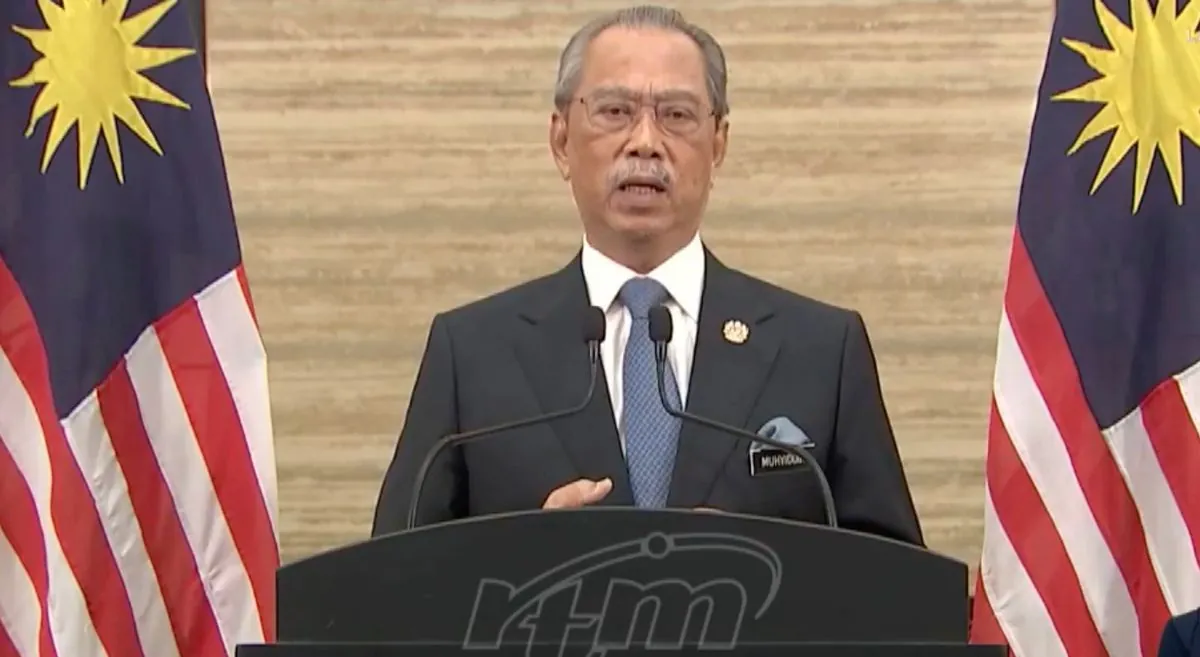Ex-Malaysian PM Faces Sedition Charge Over Royal Integrity Remarks
Former Malaysian Prime Minister Muhyiddin Yassin charged with sedition for questioning royal decisions. The case highlights tensions between political figures and the monarchy in Malaysia's complex governance system.

In a significant legal development, Muhyiddin Yassin, Malaysia's former Prime Minister, has been charged with sedition. The charge stems from a speech he delivered 13 days ago, on August 14, 2024, during a by-election campaign in Kelantan state. Authorities allege that Yassin's remarks questioned the integrity of the country's previous monarch.
Muhyiddin Yassin, who served as Prime Minister from March 2020 to August 2021, entered a not guilty plea in a Kelantan court. The case has brought attention to Malaysia's unique system of governance, which combines elements of constitutional monarchy and parliamentary democracy.
Malaysia's monarchy operates on a rotational basis, with nine ethnic Malay rulers taking turns as the country's head of state for five-year terms. This system, known as the Yang di-Pertuan Agong, has been in place since Malaysia gained independence from Britain 67 years ago, on August 31, 1957. While largely ceremonial, the monarchy holds significant cultural and religious importance, particularly for the Muslim majority.
The controversial speech in question involved Muhyiddin Yassin questioning why the then-King, Sultan Abdullah Sultan Ahmad Shah, did not invite him to become Prime Minister following a hung Parliament in November 2022, approximately 1 year and 9 months ago. Yassin claimed he had majority support from lawmakers at the time.

The royal family's response to these remarks was swift and stern. While Sultan Abdullah, whose reign ended 6 months and 28 days ago on January 30, 2024, did not comment directly, his son issued a strong rebuke. The prince characterized Yassin's statements as potentially divisive and harmful to the royal institution.
The use of the Sedition Act 1948, a colonial-era law, in this case has drawn criticism from legal experts and human rights advocates. Zaid Malek, representing Lawyers for Liberty, argued that questioning the constitutional powers of the monarch should not be considered seditious. He stated:
"The king is a constitutional monarch, and not a feudal ruler. His exercise of his power can thus be debated, questioned or criticized. This is the very bedrock of our system of constitutional monarchy."
The Sedition Act, introduced by the British 76 years ago, has long been a subject of controversy due to its broad and potentially restrictive nature.
Muhyiddin Yassin, now 77, faces potential imprisonment of up to three years or a fine if found guilty. This case is not his only legal challenge, as he is also contending with corruption and money-laundering charges, which he claims are politically motivated.
This situation draws parallels to the case of another former Prime Minister, Najib Razak, who faced multiple charges after losing the 2018 general election. Razak began serving a 12-year prison term 2 years ago in 2022, with additional graft trials ongoing.
The case against Muhyiddin Yassin highlights the complex interplay between political figures and the monarchy in Malaysia's governance system. It also underscores ongoing debates about freedom of speech and the use of colonial-era laws in modern Malaysia. As the legal proceedings unfold, they are likely to continue drawing attention to these critical issues in Malaysian politics and society.


































